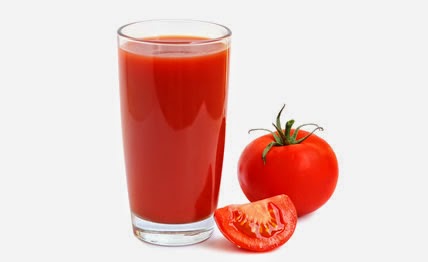Introduction
Tomatoes have received a lot of recent attention because of their lycopene content. This red carotene has been shown to be extremely protective against the major cancers, i.e., breast, colon, lung, skin, and prostate cancer. Lycopene has also been shown to lower the risk of heart disease, cataracts, and macular degeneration in some studies. Lycopene helps prevents these diseases and others by neutralizing harmful oxygen free radicals before they can do damage to cellular structures as well as exerting some anti-inflammatory effects.
Background Data:
Obesity is regarded as a chronic inflammatory condition in which the increased level of body fat leads to an increase in circulating inflammatory mediators. Since lycopene has been shown to reduce markers of inflammation in some studies, researchers have hypothesized that the consumption of tomatoes and other lycopene-rich foods may help to reduce inflammation in people who are overweight or obese. This effect could have clinical significance in reducing the risk for cardiovascular disease (CVD). Population based studies have shown consumption of ≥7 servings/wk of tomato-based products has been associated with a 30% reduction in the relative risk of CVD.
[expand title=”Read More” swaptitle=”Close”]
High lycopene concentrations in blood and adipose tissue correlate with a reduction in CVD incidence, and low concentrations are associated with early atherosclerosis and elevated markers of inflammation.
New Data:
A total of 106 overweight or obese female students of the Tehran University of Medical Sciences were enrolled and randomly allocated to an intervention group or a control group consuming 330 ml/day of tomato juice or water, respectively, for 20 day. At baseline and day 20, serum concentrations of inflammatory mediators were compared between the groups. Serum concentrations of the inflammatory mediators IL-8 and TNF-α decreased significantly in the intervention group compared with the control group and with baseline.
Subgroup analysis indicated that this effect was confined to subjects who were overweight, but not obese. Among obese subjects, serum IL-6 concentration was decreased in the intervention group compared with the control group.
These results indicate that tomato juice reduces inflammation in overweight and obese females and frequent consumption may help in reducing the risk of developing inflammatory diseases such as CVD and diabetes.
Commentary:
The absorption of lycopene is highly dependent on the tomato product being consumed. The redder the tomato, the higher the lycopene content and the more the tomato is processed, the better the lycopene is absorbed because processing “liberates” more lycopene from the plant’s cells. The absorption of lycopene is five times greater from a supplement, or tomato paste or juice than from raw tomatoes. Eating a lycopene source with oil, such as olive oil, can also improve its absorption. That’s another reason why a Mediterranean diet has so many healthful properties.
Although lycopene supplements are available at health food stores, check out the levels and cost from tomato paste:
Lycopene Source Total mg of Lycopene Cost
One ounce of tomato paste 16 mg $0.065
Lycopene supplement (one 10 mg capsule) 10 mg $0.36
Twelve ounce can of tomato paste 192 mg $0.69
Twelve ounce can of tomato juice 28 mg $1.99
Lycopene supplement (1 bottle – 60 capsules) 600 mg $21.95
Reference:
Ghavipour M, Saedisomeolia A, Djalali M, et al. Tomato juice consumption reduces systemic inflammation in overweight and obese females. Br J Nutr. 2013 Jun;109(11):2031-5.
[/expand]




